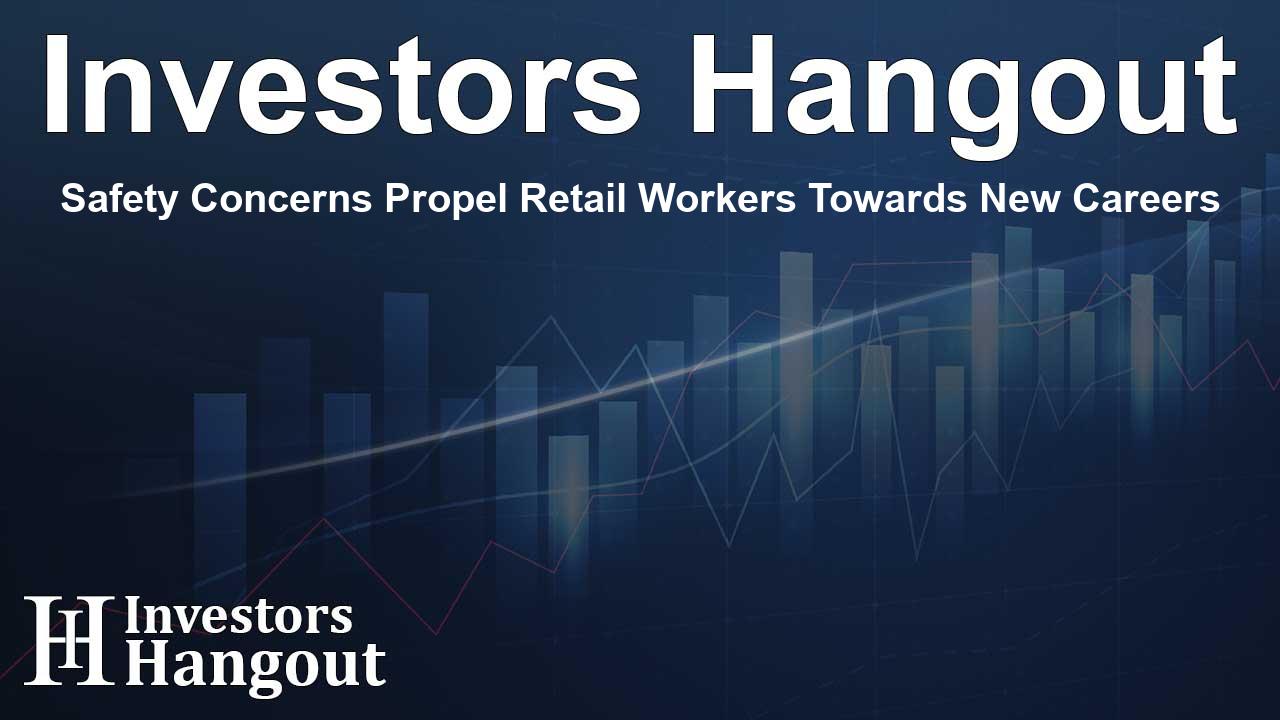Safety Concerns Propel Retail Workers Towards New Careers

Heightened Safety Concerns Among Retail Workers
In recent years, retail workers have expressed increasing concerns for their personal safety while on the job. A comprehensive study conducted by the Loss Prevention Research Council in collaboration with Verkada highlights the alarming statistics regarding retail employee safety. This ongoing issue is contributing to a growing trend where many retail workers contemplate leaving their positions due to fear of workplace incidents.
Key Findings on Retail Workplace Safety
The findings from the State of Retail Safety Report reveal significant issues that impact both workers and employers in the retail sector. Many employees feel their safety is compromised due to inadequate security measures. Alarmingly, 27% of retail workers indicate that they often feel unsafe at work, which is not a trivial concern.
Customer Harassment and Aggression
An unsettling 54% of retail employees have encountered aggression or harassment from customers. Despite these dangers, a considerable portion—22%—report that their workplace offers minimal security provisions. This lack of adequate measures leaves many workers feeling vulnerable while performing their duties, which can significantly impact their job satisfaction and overall mental wellbeing.
A Ripple Effect on Job Retention
The anxiety surrounding personal safety is influencing retail employees' decisions about their careers. Almost 20% of workers have thought about seeking new job opportunities due to these concerns. When surveyed, 40% expressed that the likelihood of them leaving their job in the next year is primarily due to safety fears. Such sentiments are echoed by retail store managers, with 37% acknowledging that safety concerns hinder their hiring efforts.
The Need for Enhanced Safety Measures
Indeed, retail workers believe that implementing better security protocols could directly enhance their sense of safety on the job. About 71% of those who have experienced any form of workplace violence reported that they would feel more secure with improved safety measures in place. Additionally, many of them believe that heightened security could have prevented various incidents of theft and robbery that plague the industry.
The Importance of Reporting Mechanisms
While increasing physical security can provide some level of protection, more needs to be done to ensure employees are comfortable reporting incidents. It’s concerning that only 52% of respondents report violent encounters to law enforcement. This number declines even further to 44% when coworkers are affected, suggesting an urgent need for better channels for reporting incidents.
Voices of Advocacy: Insights from Industry Leaders
Industry experts stress the importance of recognizing retail work as a critical component of the American economy. According to Read Hayes, Executive Director of the Loss Prevention Research Council, retail supports a substantial number of jobs and it’s imperative to mitigate risks associated with these roles.
Alana O'Grady Lauk, Vice President of Public Affairs at Verkada, highlighted the necessity of not only enhancing security infrastructure but also fostering a workplace culture that values and protects employees. Safety is a fundamental right that must be prioritized.
Understanding the Research Methodology
The findings of this study stem from a mixed-methods research study carried out in the previous year. It involved an online survey of over a thousand retail workers. The insights gained from these responses were complemented by detailed interviews with several individuals, providing a deeper understanding of the real experiences behind the statistics.
About Loss Prevention Research Council (LPRC)
The Loss Prevention Research Council partners with a range of stakeholders in the retail industry to advance strategies for protecting assets. LPRC focuses on minimizing theft and preventing violence through scientific research and collaboration with retail leaders.
About Verkada
Verkada is recognized for its innovative suite of products designed for security, including video cameras and access control systems. Over 28,000 organizations worldwide rely on Verkada for security solutions that are scalable and efficient.
Frequently Asked Questions
What is the main concern among retail workers according to the report?
The main concern is personal safety, with more than 40% indicating they may leave their job due to this issue.
How many retail workers feel safe at their workplace?
About 27% of retail workers reported that they feel unsafe while at work, highlighting significant security concerns.
What percentage of retail workers have experienced customer aggression?
Over 54% of retail employees reported facing customer aggression or harassment during their work.
How effective are current reporting mechanisms for violence in retail?
Only 52% of employees consistently report violent incidents, indicating a lack of trust or fear in current reporting mechanisms.
What steps are necessary to improve safety for retail workers?
Enhanced security measures and ensuring comfortable reporting mechanisms are critical for improving safety in retail environments.
About Investors Hangout
Investors Hangout is a leading online stock forum for financial discussion and learning, offering a wide range of free tools and resources. It draws in traders of all levels, who exchange market knowledge, investigate trading tactics, and keep an eye on industry developments in real time. Featuring financial articles, stock message boards, quotes, charts, company profiles, and live news updates. Through cooperative learning and a wealth of informational resources, it helps users from novices creating their first portfolios to experts honing their techniques. Join Investors Hangout today: https://investorshangout.com/
Disclaimer: The content of this article is solely for general informational purposes only; it does not represent legal, financial, or investment advice. Investors Hangout does not offer financial advice; the author is not a licensed financial advisor. Consult a qualified advisor before making any financial or investment decisions based on this article. The author's interpretation of publicly available data shapes the opinions presented here; as a result, they should not be taken as advice to purchase, sell, or hold any securities mentioned or any other investments. The author does not guarantee the accuracy, completeness, or timeliness of any material, providing it "as is." Information and market conditions may change; past performance is not indicative of future outcomes. If any of the material offered here is inaccurate, please contact us for corrections.